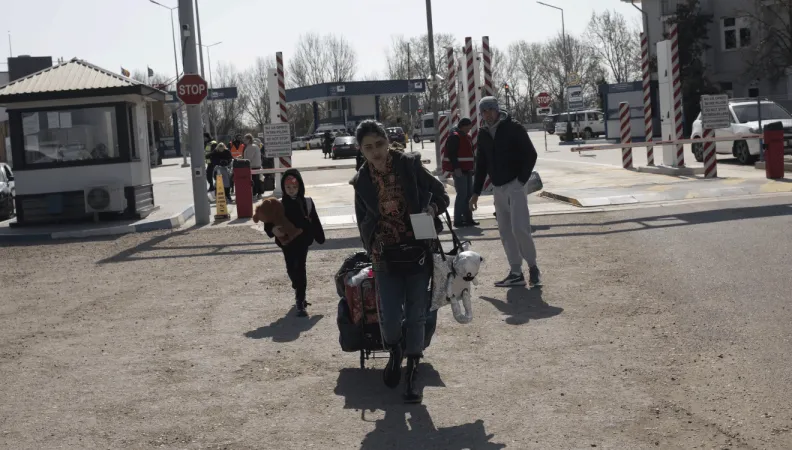Share the page
Foreign Direct Investment: Scarce for some, Abundant for others
Published on

Foreign direct investment (FDI) can indicate the relative attractiveness of emerging and developing countries' economies and their economic trajectories. Given the shocks that have struck economies around the world in recent years, FDI was the focus of a special edition of AFD’s “MacroDev” series. Sylvain Bellefontaine, an AFD economist and coordinator of the publication, unpacks FDI and explains its importance.
How important is foreign direct investment for the development of countries?
S.B.: Foreign direct investment (FDI) has multiple benefits for the real economy. When a foreign company sets up an industrial site, a wind farm or a call center, or makes an investment in a financial corporation, this contributes to economic growth, job creation, technology transfers, export earnings, fiscal resources, and ultimately to the attractiveness of the host country.
Attracting large flows of FDI can contribute to financial inflows and compensate deficits. Latin America for example, attracts flows sufficient to offset its current account deficit. This is not the case for Africa, which is forced to resort to international borrowing.
Read the publication: MacroDev: International Economy: Is FDI Running Dry?
Still, FDI only accounts for a small fraction of the overall investment ratio in countries. And the overall level of FDI remains low in the poorest countries, which need it most. It’s not easy to attract FDI in countries lacking in transport and energy infrastructure, skilled labor, and political stability. Except, of course, when there’s a windfall from oil, gas or mineral deposits which will be exploited by major international corporations when the financial resources and technical expertise aren’t available at local level.
Has foreign direct investment been hampered by the geopolitical tensions in recent years?
Since 2018, the international environment has indeed been marked by growing tensions, ranging from the trade-related, as between China and the USA, or disruptions to supply chains, which have forced up commodity prices. We’ve seen this with the conflicts in Ukraine and the Middle East. We’re currently witnessing a kind of geo-economic fragmentation, and many countries are seeking to secure their self-sufficiency in terms of energy, food and, more generally, strategic goods, by putting up barriers to protect themselves from international competition.
But these tensions haven’t brought FDI to a standstill. Following the slowdown caused by the pandemic in 2020 and 2021, FDI even reached a record level in 2023. The figures from the FDI Markets report show that the flow of greenfield* investment reached $1.34 trillion worldwide. It is estimated that Europe attracted 38%, followed by Asia (25%), North America (14%), Africa and the Middle East (16%), and Latin America and the Caribbean (7%). When the level is compared to the size of each economy, we see that developing countries attract more than advanced countries.
And when we consider all the forms of FDI, such as equity investments, privatizations and intra6group loans, we see that there was a decline in developed countries in 2023, but an increase in emerging and developing countries. While one year doesn’t make a trend, this is quite reassuring, as foreign investment strategies are always a sign of long-term visions and commitments.
There are obviously winners and losers. Over the last four years, the renewable energy sector has been the most attractive, with a total of more than $700 billion in 2022 and 2023, followed by the electronics sector and fossil fuels, with recent investments in several African countries where there have been hydrocarbon discoveries (including Mauritania, Mozambique Niger, Senegal and Uganda).
On the other hand, there has been a decline in financing for infrastructure projects, which isn’t necessarily good news for countries lagging well behind in this area.
What type of response does AFD Group support?
Proparco (AFD Group’s private sector financing arm) participates in the financing through loans and equity investments. It also supports businesses and financial institutions in Africa, Asia, Latin America, and the Middle East. The energy sector is a focus, so obviously renewable energies (ReN), along with sustainable real estate development.
Our Group also promotes FDI indirectly through the technical assistance we provide to our partners on aspects concerning governance, capacity building in administrations and public finances. There are fundamentals that everyone can agree on: integrity, combating corruption, assuring fair and equitable procurement, and an impartial justice system. They all contribute to improving the legal framework, political stability and, more generally, the business environment.
